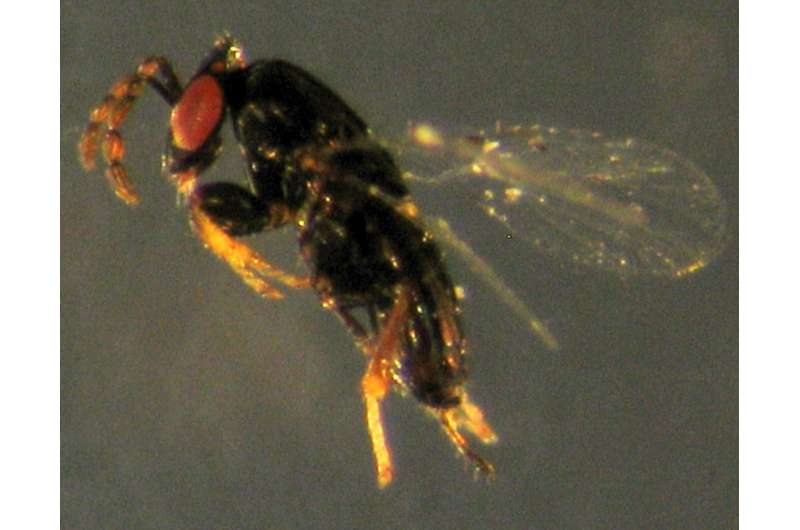New species of parasitic wasp discovered in the eggs of leaf-rolling weevils in Africa

A new species of parasitic wasp has been obtained from the eggs of weevils, associated with bushwillows, collected and identified by Dr. Silvano Biondi. Given the tiny insect from northeastern Gabon is the first record of its genus for West-Central Africa, the researchers Dr. Stefania Laudonia and Dr. Gennaro Viggiani, both affiliated with Italy's University of Naples Federico II, decided to celebrate it by assigning the species a name that refers to the continent. Their team has published the findings in the open access journal ZooKeys.
Named Poropoea africana, the new species belongs to a large worldwide group of wasps well-known as egg parasitoids of leaf-rolling weevils. Using characteristically long ovipositors, they lay their own eggs in the eggs of the hosts, found in cigar-like rolls.
The new wasp measures less than 2 mm. It can be distinguished from related species by a number of characters, including the structure of the antennae, and the front and hind legs, which are more robust than the middle ones. The latter, which is a unique trait for the genus, seems to be an adaptation to host parasitisation, where the modified legs likely support the body and improve the propulsive efficiency of the ovipositor.
More information: Stefania Laudonia et al, A new species of Poropoea Foerster from Africa (Hymenoptera, Chalcidoidea, Trichogrammatidae), ZooKeys (2017). DOI: 10.3897/zookeys.658.11501
Journal information: ZooKeys
Provided by Pensoft Publishers





















